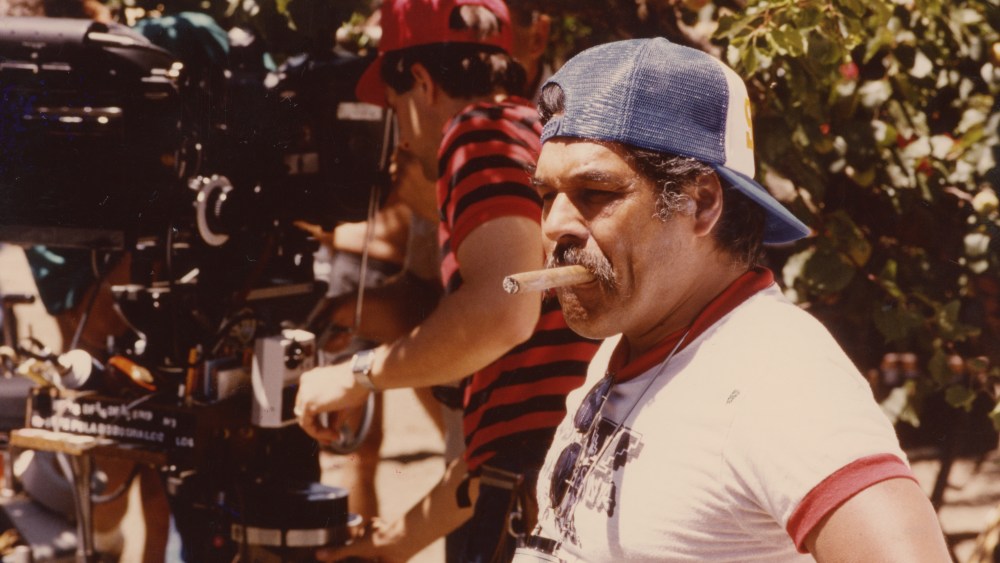A documentary about famed playwright and screenwriter Luis Valdez has won the seventh annual $200,000 Library of Congress/Lavigne/Ken Burns Award.
Directed by David Alvarado, American Pachuco: The Legend of Luis Valdez chronicles how Valdez illuminated the Mexican-American experience on stage and screen, transforming America’s cultural landscape. In 1965, Valdez founded the Chicago theater company El Teatro Campesino with the United Farm Workers. Fourteen years later, in 1979, Valdez premiered his play Zoot Suit in New York, becoming the first Chicano director to have a play on Broadway. Valdez went on to write and direct the 1987 film La Bamba.
Since the Library of Congress/Lavigne/Ken Burns Award’s inception, the Library of Congress, Better Angels Society, Ken Burns, and Crimson Lion/Lavigne Family Foundation have awarded $2.6 million to documentary filmmakers whose late-stage documentaries use original research and compelling storytelling to bring American history to life.
“American Pachuco: The Legend of Luis Valdez” features extensive interviews with the 85-year-old Valdez, narrated by Edward James Olmos, who starred in the original “Zoot Suit.” The filmmakers also worked with the University of California, Santa Barbara, to digitize more than 80,000 feet of never-before-seen footage from Teatro Campesino, which was aging and at risk of being lost forever.
“‘American Pachuco’ captures the life of a singular artist and the pulse of a specific moment in American history. Throughout the selection process, the film was praised for being dramatic, compelling, relevant and entertaining,” said Burns. This work highlights a man whose career in the arts broke down barriers and forged a more complete understanding of our shared American story. ”
Robert Randolph Newlen, Assistant Librarian of Congress, added, “Luis Valdez created the Mexican American story on stage and in film. The Library of Congress is pleased to recognize this documentary that highlights the life of this writer and director who sought to ‘create a shared vision that speaks to audiences.'”
Runner-up Yuriko Gamo Romer’s “Diamond Diplomacy” won a prize of $50,000. This paper examines how baseball unexpectedly evolved into a national pastime in Japan, despite cultural and political tensions with the United States during the 20th century. The film offers a new perspective on the history of U.S.-Japan relations, exploring how sports function as cultural intermediaries and examining the bond that baseball forged between our two countries.
“Baseball is a topic close to my heart, and ‘Diamond Diplomacy’ gave me a deeper understanding of how America’s pastime can transcend borders,” Burns said.
This year, 121 American history documentary feature projects were submitted for consideration. Six finalists were selected by a national jury. Newlen consulted with Burns to select the winner and runner-up.
“Each year, the Film Awards remind us that making and watching American historical documentaries are powerful forms of civic engagement,” said Katherine Malone-France, president and CEO of the Better Angels Society. “The films honored this year connect us to the past, each other, and the wider world.”
The four finalists will each receive a $25,000 prize: Angela Tucker’s The Inquisitor, Edward Gray’s One More Mission, J.M. Harper’s Soul Patrol, and Boni Cohen, John Schenk and Pedro Cos’ The White House Effect.

